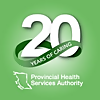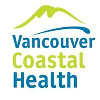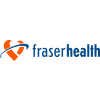Mental Health and Psychosocial Support (MHPSS) Specialist
HEMBC Psychosocial
Vancouver, BC
Pursuant to section 42 of the British Columbia Human Rights Code, preference will be given to applicants of Indigenous Ancestry.
We invite applicants to self-identify within their cover letter and / or resume.
In accordance with the Mission, Vision and Values, and strategic directions of PHSA safety, including both patient and employee safety, is a priority and a responsibility shared by everyone at PHSA.
As such, the requirement to continuously improve quality and safety is inherent in all aspects of this position.
Reporting to the Director, Provincial Psychosocial Services, the Mental Health and Psychosocial Support (MHPSS) Specialist provides strategic leadership, policy and guidance for the development of, and continuous improvement towards, effective psychosocial support following disasters.
The position works collaboratively with organizations and communities including Indigenous communities, regional districts, townships, municipalities, health authorities, Emergency Management BC, First Nations Health Authority, and numerous relevant stakeholders, such as non-government organizations (NGOs), in planning for and implementing psychosocial recovery.
The MHPSS Specialist represents the Provincial Psychosocial Services on cross government recovery initiatives, and with community partners and other government ministries in the coordination and alignment of mental health and wellness / recovery services.
This includes finding new ways of engaging existing partners and initiating new partnerships across the province.
What you’ll do
Informs and supports the strategic operational plans for psychosocial response and recovery including both short- and long-term goals, objectives, procedures and guidelines to support HEMBC’s goals and vision;
works with the internal and external stakeholders to identify, develop, implement and evaluate community mental health recovery support.
Collaborates with the Ministry of Health, health authorities, non-government and other organizations regarding the development of an evidence informed framework for delivering psychosocial support and mental health care following disasters, across the province.
Provides leadership, consultation and coordination to provincial mental health working groups to address gaps in psychosocial services as identified by impacted communities.
Provides recovery guidance and advice to local government representatives and senior management of NGO service providers in disaster impacted communities Leads the coordination of appropriate psychosocial needs during stabilization and recovery by consulting and liaising with impacted communities and their leaders, local service providers, NGO’s, faith-based groups, and various government ministries.
Ensures the various groups feel supported through engagement, coordination, and consultation while they lead their community through short- and long-term recovery.
Represents HEMBC & health at community partnership gatherings and helps establish links back into the geographic health authority.
- Establishes partnerships with government ministries, and NGOs, to ensure there is a well-planned approach to psychosocial support as the provision of psychosocial support is an integral part of disaster relief and social recovery.
- Supports requests for psychological support and wellness seminars and works collaboratively with Disaster Psychosocial Services (DPS), the Provincial Overdose Mobile Response Team, and identified community resources to ensure appropriate support, consultation, and / or training is available within scope of the program and funding.
- Supports initiatives to engage, recruit and retain DPS volunteers; identifies and supports education and training requirements to ensure continuous improvement.
- Supports DPS deployment activation requests. Determines and coordinates workforce requirements for field deployment. Provides technical guidance to MHPSS staff working in the field.
Is available to deploy to provide coordination and support.
Conducts literature scans and frequently reviews national and international recovery research and new initiatives to support disaster impacted communities and individuals.
Works collaboratively with other Ministry research and innovation groups to develop new strategies and establish best practices.
Establishes partnerships amongst researchers, practitioners and impacted communities to enable a collaborative foundation for research and evaluation in disaster settings.
Manages a number of concurrent and multi-faceted strategic projects involving collaboration with other ministries, government and non government agencies, partners, stakeholders and the general public.
This includes development and / or engagement in project evaluations, recovery research, mental health and wellness working groups, and implementation of novel wellness support initiatives.
Works with impacted communities to determine mental health and wellness capabilities, gaps, and needs and develops associated budget proposals for the Ministry of Health to support the identified needs.
Establishes and advocates for budgets for community supports with funding. Manages received funds from the Ministry of Health tracks, monitors budget and tracks expenditures, and ensures spending is on track.
What you bring
Qualifications
A level of education, training, and experience equivalent to a Bachelor of Arts degree in psychology, sociology, or other related fields with a minimum of seven (7) to ten (10) years experience working in the emergency management field with demonstrated project management experience.
Experience in working with Indigenous communities and a minimum of four (4) years experience in leading projects and processes in a multi-disciplinary environment involving large service organizations.
Knowledge of program and policy development, evaluation and implementation of emergency management principles. A broad knowledge of mental health issues, stress management, trauma, evidence based interventions in disaster psychosocial planning, response and recovery is required, with a strong understanding of the public and private components of mental health and other health care systems, mental health teams and programs, municipalities, regional districts and other service agencies.
It is important to have a broad knowledge of and ability to network / collaborate with urban and rural government representatives, and disaster response agencies, both across government and including all NGOs with response mandates, Salvation Army, Red Cross, Emergency Social Services, and others.
Strong organizational, leadership, inter-personal, conflict resolution and management skills along with excellent facilitation and mediation skills.
The position requires the ability to develop and maintain effective working relationships with groups and individuals with diverse or competing interests and to resolve differences in a politically sensitive environment.
Ability to provide concise and accurate information orally and in writing, including reports, presentations and correspondence and must be highly motivated and possess initiative, sound judgment and discretion.
Able to travel throughout the province.
Lived experiences are valued alongside formal education, representing skills and insights gained through personal and community life rather than solely from formal education or professional training.
For Indigenous candidates, these experiences can encompass deep cultural knowledge, community engagement, resilience, strong interpersonal skills, and holistic perspectives to name a few.
Skills & Knowledge
- Demonstrated knowledge and understanding of legislative obligations and provincial commitments found in the foundational documents - including Truth & Reconciliation Commission’s Calls to Action (2015), In Plain Sight (2020), BC's Declaration on the Rights of Indigenous Peoples Act (2019), United Nations Declaration on the Rights of Indigenous Peoples (UNDRIP), Reclaiming Power and Place Missing and Murdered Indigenous Women & Girls Calls for Justice (2019), the Declaration Act Action Plan and Remembering Keegan : A First Nations Case Study - and how they intersect across the health care system.
- Supports team members on their learning journey related to Indigenous-specific Anti-racism, Indigenous Cultural Safety and Humility, DEI and anti-racism.
- Works collaboratively with appropriate Indigenous teams and Diversity Equity and Inclusion departments to ensure holistic application of culturally safe, equitable and anti-racist lenses.
- Commitment to upholding the shared responsibility of creating lasting and meaningful reconciliation in Canada as per TRC (2015) and BC's Declaration on the Rights of Indigenous Peoples Act (2019).
- As a strong asset for consideration, we are looking for our successful candidate to have : Knowledge of social, economic, political and historical realities of settler colonialism on Indigenous Peoples and familiarity with addressing Indigenous-specific anti-racism, anti-racism and Indigenous Cultural Safety and foundational documents and legislative commitments (The Declaration Act, the Declaration Action Plan, TRC, IPS, Remembering Keegan, etc.).
What we bring
Every PHSA employee enables the best possible patient care for our patients and their families. Whether you are providing direct care, conducting research, or making it possible for others to do their work, you impact the lives of British Columbians today and in the future.
That’s why we’re focused on your care too offering health, wellness, development programs to support you at work and at home.
- Join one of BC’s largest employers with province-wide programs, services and operations offering vast opportunities for growth, development, and recognition programs that honour the commitment and contribution of all employees.
- Access to professional development opportunities through our in-house training programs, including +2,000 courses, such as our San’yas Indigenous Cultural Safety Training course, or Core Linx for Leadership roles.
- Enjoy a comprehensive benefits package, including municipal pension plan, and psychological health & safety programs and holistic wellness resources.
- Annual statutory holidays (13) with generous vacation entitlement and accruement.
- PHSA is a remote work friendly employer, welcoming flexible work options to support our people (eligibility may vary, depending on position).
- Access to WorkPerks, a premium discount program offering a wide range of local and national discounts on electronics, entertainment, dining, travel, wellness, apparel, and more.
Salary Range : $$88,990 - $127,923 / year. The starting salary for this position would be determined with consideration of the successful candidate’s relevant education and experience, and would be in alignment with the provincial compensation reference plan.
Salary will be prorated accordingly for part time roles.
Location : 1333 W Broadway, Vancouver, BC V6H 4C1
Closing date : Applications accepted until position is filled
Hours of Work : 8 : 30-4 : 30 (Monday to Friday)
Requisition # 170223E
What we do
The Provincial Health Services Authority () plans, manages and evaluates specialized health services with the BC health authorities to provide equitable and cost-effective health care for people throughout the province.
Our values reflect our commitment to excellence and include : Respect people Be compassionate Dare to innovate Cultivate partnerships Serve with purpose.
Learn more about PHSA and our programs :
PHSA is committed to equity in our hiring and employment practices. With learning and compassion, we are addressing existing inequities and barriers throughout our systems.
PHSA is seeking to create a diverse workforce and to establish an inclusive and culturally safe environment. We invite applications and enquiries from all people, particularly those belonging to the historically, systemically, and / or persistently marginalized groups identified under the Human Rights Code.
One of PHSA’s North Star priorities is to eradicate Indigenous-specific racism, which includes dismantling barriers to health care employment at every level.
We welcome Indigenous individuals to apply and / or contact the Sanya'kula Team (Indigenous Recruitment & Employee Experience) for support at .
Indigenous-specific anti-racism initiatives are rooted in addressing the unique forms of discrimination, historical and ongoing injustices, and marginalization faced by Indigenous peoples.
These initiatives align with an Indigenous rights-based approach, recognizing the inherent rights and self-determination of Indigenous communities.
PHSA must uphold legislative obligations and provincial commitments found in the foundational documents such as including Truth & Reconciliation Commission’s Calls to Action (2015), In Plain Sight (2020), BC's Declaration on the Rights of Indigenous Peoples Act (2019), United Nations Declaration on the Rights of Indigenous Peoples (UNDRIP), Reclaiming Power and Place Missing and Murdered Indigenous Women & Girls Calls for Justice (2019), the Declaration Act Action Plan and Remembering Keegan : A First Nations Case Study.



